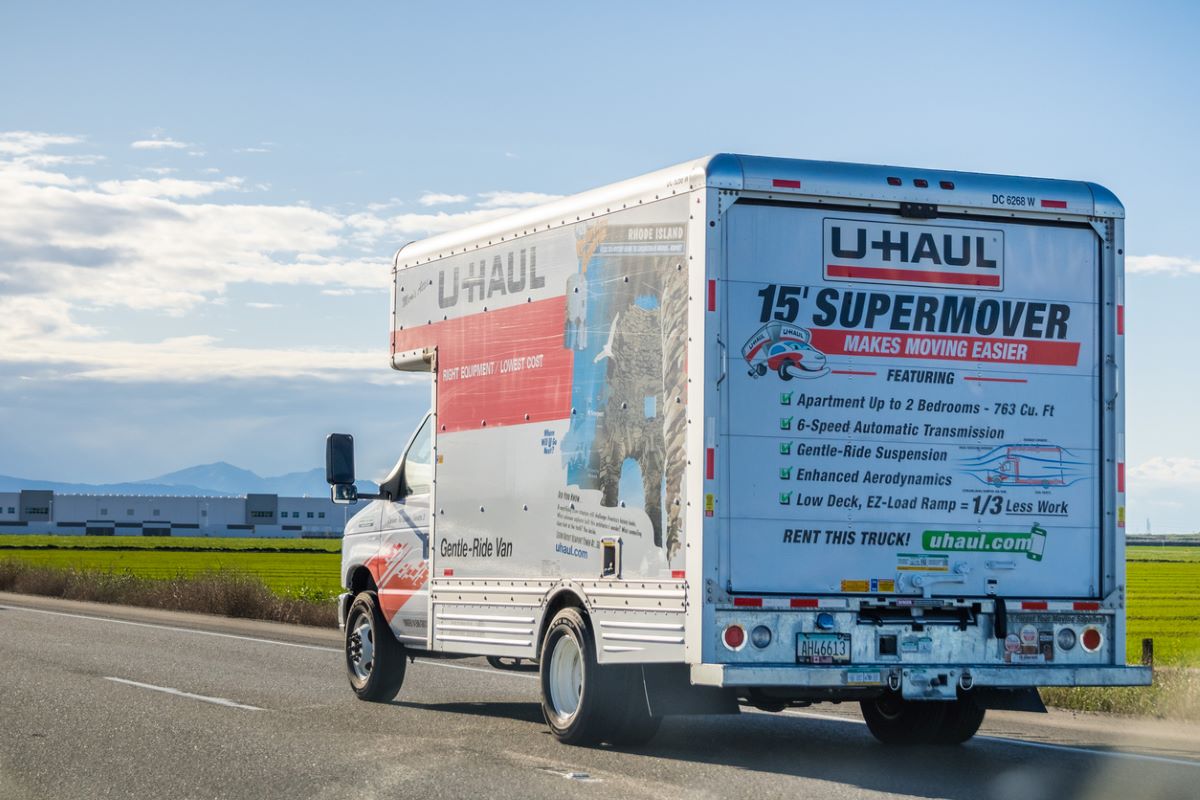4 essential components of U-Haul’s workplace wellness efforts
How one huge company leads with empathy and focuses on rapid pivots and measuring results in its efforts to stay competitive.

What started as a family-owned business 76 years ago has become a 33,000-employee organization, and now, U-Haul’s family-oriented culture is fostering worker-engagement success fit for the 21st century.
“U-Haul is a huge company with a small-company atmosphere,” says Jessica Lopez, chief of staff. “Anything we can do to help provide team members and their families with the tools to live their best and healthiest lives is what we aim to do every single day.”
The company, based in Phoenix, was recently recognized with a 2020 Healthiest Employer award from the Phoenix Business Journal.

U-Haul CEO, Joe Shoen wanted to take care of his employees so they could take care of their customers, Lopez says. As a father himself, Shoen understands prioritizing a work/life balance.
When he decided to create a wellness initiative at U-Haul, some foundational tools were already in place, including empathetic leadership and an embrace of employee feedback.
Covering all employees
U-Haul’s organizational structure means it has small locations nationwide and larger offices in Missouri and Arizona. Employees range from office workers to truck drivers and warehouse employees.
The company created a “Healthier U” program in 2016 that encompasses four core wellness areas: nutrition, fitness, mindset, and overall health. Overall, the wellness program has earned high marks, including awards and a 60% engagement rate from U-Haul employees.
So how does U-Haul ensure its people have an opportunity to benefit from the “Healthier U” program? It starts with a leadership position that is pro-wellness, so location managers are empowered to share wellness news and benefits, encourage participation, and help provide feedback to Monique Harty, the wellness program manager.

U-Haul also offers mobile clinics at three of its largest locations and has long used telehealth to provide care for employees and their families, both full and part-time. It covers dependent children ages two to 12 with complete coverage of check-up visits, urgent care, and prescription costs. Lopez says the cost of covering a child’s healthcare is less than what the company would lose with a distracted or absent employee, so it’s a win-win benefit.
U-Haul uses webinars to teach shift workers before-and-after stretching techniques. In collaboration with the risk-management department, Harty and her team created a Safety and Wellness Champion program, which is launching soon, to incentivize warehouse employees to engage in stretching to prevent injury. U-Haul uses its on-staff physical therapist to study how workers move during the day to better serve them with something akin to an industrial athlete program.
Employee feedback inspired improvement
U-Haul’s focus on employee feedback goes back decades. Shoen famously made his cell phone number public in a 2008 Inside Edition interview. The company routinely surveys employees. TThe wellness program has a direct email address to collect workers’ issues or feedback. “They’re very outspoken, which we like,” Harty says.
When the company’s “Get Fit” fitness program didn’t attract the usage they had hoped for, Harty and her team used empathy to better understand the program’s shortcomings: It lacked inclusion for all fitness levels. So instead of offering a reimbursement of $25 a month for hitting the gym 30 times in 90 days, the team created a tiered program. Now employees can receive rebates at 10, 20, and 30 gym visits in 90 days. In the first four months of the adjustment, usage increased 20%.
When U-Haul learned that not all employees had access to a dietician, it used the same inclusion efforts to pivot the dietician benefit to a nutrition program. It offered reimbursements for joining the Weight Watchers app.
Monitoring employee usage of its mental-health benefits, U-Haul saw three times the engagement with its EAP during the pandemic. U-Haul also offers webinars with topics like managing difficult conversations since many frontline workers faced disgruntled employees and customers.
Strategic wellness pays off
U-Haul’s three-person wellness team consists of Harty as manager, Lopez as chief of staff, and Becca Gibson for communications. Together they collaborate with the HR and risk management departments, as well as U-Haul’s third-party vendors. The team measures claims submitted, demographics, locations, usage and more to determine if the wellness program is hitting its goals. U-Haul has partnered with SpringBuk to manage analytics. Before the pandemic, U-Haul was already documenting positive ROI from its wellness efforts. “Our gaps in chronic care and conditions were closing, which is an amazing thing,” Harty says. “Our preventative visits were up.”
Seeing to maintain its competitive edge, U-Haul is following the trend of offering on-site health centers to provide robust options and convenience for employees.
Then there’s the company’s own fitness facility. The U-Haul Conference & Fitness Center is a 55,000 square-foot complex featuring a basketball court, workout rooms, cardio area, walking track, a medical clinic and more. It opens officially in August at the headquarters in Phoenix for 2,200 local employees. It will also house new wellness and recruiting offices and outdoor space for wellness-oriented events, like a farmer’s market.

“It’s very important for us to share the experience of this center with our frontline service workers across North America,” Lopez says. “We will be sending out classes—whether they’re fitness classes, lunch-and-learns, webinars, or stretching for our warehouse and assembly workers. We want to maximize the benefit to all 33,000 team members.”
Harty says having the clinic so close will allow employees to stay on track with their preventative care, saving money and time. The team is planning a strategic communications rollout to inform employees of all the benefits associated with the on-site clinic. Lopez says these amenities are expected at a corporate headquarters these days, and U-Haul intends to be competitive.
“We want people knocking down our doors,” she says.
COMMENT
Ragan.com Daily Headlines
RECOMMENDED READING
Tags: empathy, engagement, onsite clinic, U-Haul, Wellness

